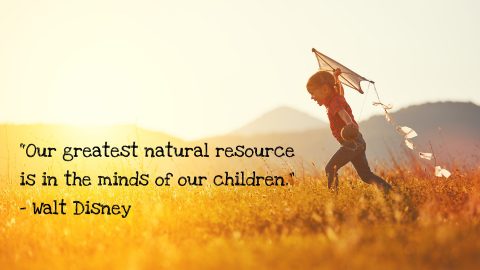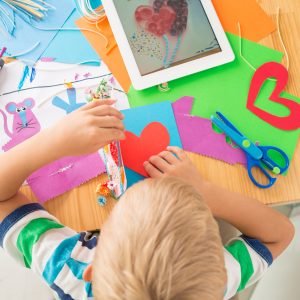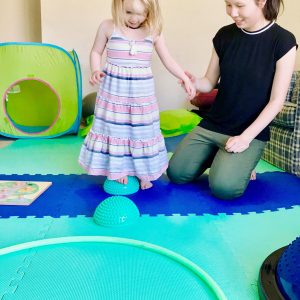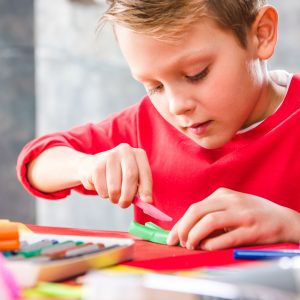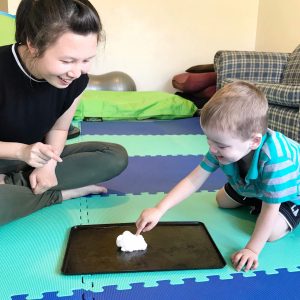Occupational Therapy helps children develop functional skills needed to take part in everyday activities – from playing, dressing, to making friends and participating in school activities (e.g. sitting, writing, reading etc).
Developmental Occupational Therapy
Developmental OT addresses difficulties associated with general development of the child. This might include:
- Fine motor skills (e.g. handwriting, scissor skills, folding, laces, hand dexterity etc.)
- Gross motor skills (e.g. clumsiness/co-ordination difficulties, climbing, catching, throwing etc.)
- Independence with functional activities (e.g. cutlery use, dressing, toileting, shoe tying etc.)
- Learning skills (e.g. concentration, organization, time management, sequencing, visual perceptual skills)
- Sensory processing (e.g. Self-regulation, ability to tolerate and respond to different sensations)- Children with sensory difficulties may over/ under respond to different sensations. This can manifest in behaviours that range from risk-taking and over reactivity, to being very quiet and withdrawn.
- Social skills (e.g. making friends, interacting with others)
- Play Skills (e.g. learning to play with others, developing key play milestones needed to facilitate academic progress)
Mental Health Occupational Therapy
Mental health OT helps children overcome emotional barriers that may be impacting engagement in daily activities. This might include:
- Anxiety and stress
- Impacts of environmental or emotional trauma
- Emotional challenges associated of Autism Spectrum Disorders
- Self-esteem difficulties
- Emotional regulation
- Self-awareness
- Coping with medical conditions
Does my child need Occupational Therapy?
Every child is unique and presents differently, but there are some key indicators that your child may benefit from Occupational Therapy. These include:
- Messy handwriting or difficulty constructing letters/ numbers/ words
- Dislikes or avoids messy play (e.g. Playing in mud, food play, sand)
- Seeks out or avoids different textures (e.g. touches everything, picky about clothes, puts non-food objects in mouth)
- Withdrawing from social situations, difficulty making or keeping friends
- Reduced confidence, anxiety, or avoidance of activities
- Difficulty with dressing, toileting, feeding, or other daily tasks
- Difficulty concentrating or following instructions
- Excessive movement or fidgeting
- Becomes easily overwhelmed in situations
- Challenging behaviours
- Clumsiness
- Difficulty catching, throwing, and bouncing balls
- Difficulty with sitting at a desk or table
- Slumped posture
About Kids Compass
Kids Compass in Chirnside Park offers individualised therapeutic services to children of all ages. We offer Play therapy, Animal-Assisted Therapy, Filial Therapy, and Occupational Therapy. Please get in touch to find out how we can help your child with our inclusive approach that encompasses not only the child; but their family and supportive networks too.


